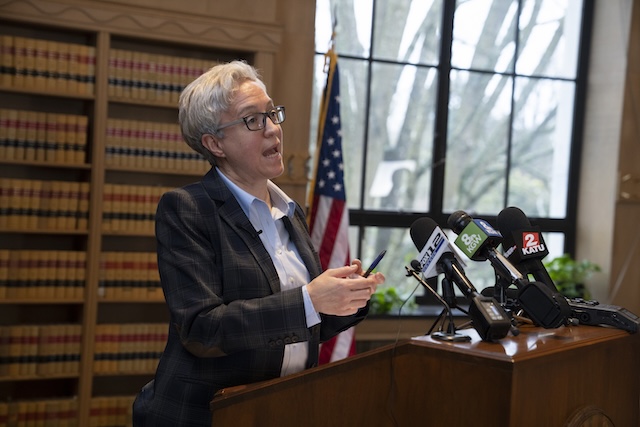Guest column: CAHOOTS termination adds thousands of calls to police
Published 8:10 am Thursday, May 1, 2025
For more than 30 years, trained civilian responders with CAHOOTS have served the city of Eugene, taking many low-level service calls typically related to homelessness, mental health, and quality of life concerns off law enforcement’s plate. The program’s successes in reducing costs and improving outcomes have been documented extensively, making it a model for similar community responder programs nationwide. But in a surprise development this month, the operator of CAHOOTS, White Bird Clinic, announced it was immediately halting all response activities in the city due to financial constraints.
As someone who has worked at the intersection of public safety and mental health — including time spent training law enforcement professionals in Eugene and across the country — this news was deeply concerning. By nearly all accounts, CAHOOTS has been an incredibly valuable service in Eugene, providing a compassionate and specialized response for vulnerable residents, while freeing up police to focus on more serious crimes One analysis, conducted by the Law Enforcement Action Partnership, a nonprofit organization of which I am a member, found that CAHOOTS has been diverting about 11,000 calls per year from police. This has saved thousands of hours for officers and potentially millions of dollars for taxpayers each year, all while preventing overdoses and other harms across Eugene.
With CAHOOTS now halting operations in Eugene, the vast majority of these low-level calls will fall to a police department that has struggled with staffing and capacity in recent years. When the wrong system responds, we don’t just misallocate resources — we risk traumatizing those in crisis and over-activating responders already at the edge of their capacity.
Although city officials have advised Eugene residents to contact the Mobile Crisis Services of Lane County as a non-police alternative, this is hardly a replacement for CAHOOTS. With fewer dedicated staff and a large coverage area, Lane County’s service will likely have much slower response times. Officials have also clarified that unlike CAHOOTS, the service will not respond to welfare checks —the vast majority of calls that have been diverted from police to CAHOOTS — or housing crises or transport requests.
The result of CAHOOTS shuttering in Eugene is effectively a lose/lose for the entire community. Law enforcement resources will be stretched even thinner, and some residents will have a much harder time seeking the services that keep them stable and safe.
Although budget shortfalls have been cited as the reason for terminating the city’s partnership with CAHOOTS, it’s also worth noting that this move may not save Eugene money in the long term. Research on community responder programs around the country has shown that they are a cost-effective and efficient alternative for responding to low-level service calls, typically operating at a fraction of the cost of police and presenting minimal risk of legal liability. An armed police response carries larger direct and indirect costs in comparison, due to higher personnel costs and the possibility of violence, complaints, or lawsuits stemming from officer involvement.
After my 30 years in public service, I understand how budgetary pressures can force officials to make difficult choices about spending. Yet, community responder programs like CAHOOTS have clearly demonstrated that they have a strong and positive return on investment. Eugene residents appear to agree, as a recent survey conducted in conjunction with Portland State University found that 94% of respondents supported funding CAHOOTS with tax dollars.
For decades, CAHOOTS has broken ground by respecting the complexity of human crisis with the right response. Preserving and evolving that kind of care requires courage and creativity, but Eugene has led before. And city leaders can lead again by finding a way to preserve this essential service for the community.
Richard Goerling is a retired police lieutenant from the Hillsboro Police Department and one of the speakers for the Law Enforcement Action Partnership.








